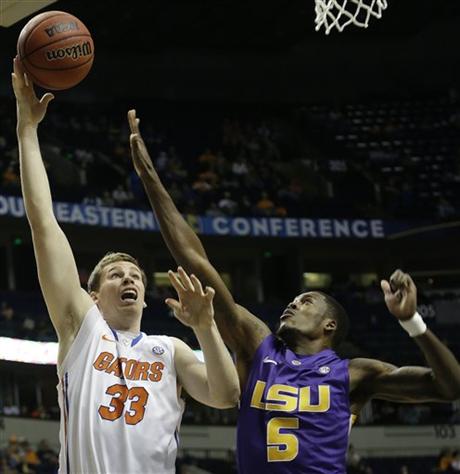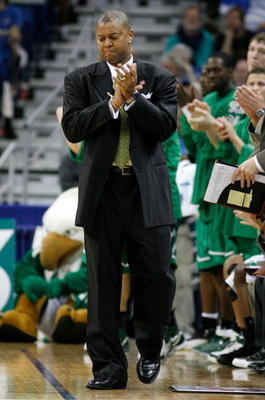Evaluating AAC Non-Conference Schedules: The Good…
Posted by CD Bradley on October 29th, 2013While major rivalries and national television match-ups get the most attention, the games against much lower profile opponents can make just as big a difference come Selection Sunday. Scheduling is with question an art, but it’s at least equally a science. Sports Illustrated‘s Luke Winn and Andy Glockner have both examined the equation for maximizing a schedule’s impact on RPI, and in turn the strength of an NCAA Tournament resume. Glockner succinctly summarized it thusly: “Don’t schedule terrible teams. Ever.” and “Don’t lose at home. Ever.” Simple enough. Expanding on that, he offered four guidelines for assembling a schedule designed to boost RPI: don’t schedule SWAC teams; play the best teams in small leagues; play neutral site games that really aren’t neutral; and remember that the consolation games in holiday tournaments can become much more important than they seem at the time.
Non-conference games account for roughly 40 percent of AAC teams’ regular season games, and closer to 35 percent of the games considered by the NCAA selection committee after the conference tournament. But these games play an oversized role because they largely determine the availability of quality wins within the league once conference play begins. Good performances against a solid non-conference schedule provides a strong RPI from the beginning, while a weak non-conference slate coupled with losses against bad teams can be very tough to overcome. If a schedule is bad enough, it can drag down the RPI of other teams in the conference, particularly in a league like the AAC with a true round robin schedule. If the league can avoid bad losses against decent competition, it can buoy the whole league, as the Mountain West showed last year with its top overall conference rating. As we will see, it’s unlikely that type of quality is present for the AAC this year.
With the elements identified by Winn and Glockner in mind, let’s take a look at the non-conference schedules facing AAC teams this season. First, the good. We’ll visit the bad and the ugly in a corollary post on Wednesday.
The Good
- Temple: The Owls face what is clearly the best non-conference schedule of any AAC team. It lacks elite competition – unless a match-up against New Mexico materializes in the final or consolation game of the Charleston Classic, there’s probably not an RPI top 25 team here – but more than makes up for it by not including any terrible teams. Almost every team here is projected to finish near the top of its own league, and the ones that aren’t – Clemson and Texas – won’t hurt by virtue of their major conference affiliations. If everything breaks right, no team on this schedule should end up with an RPI above #200. There are winnable road/neutral games, too. It’s hard to envision a schedule more optimized to boost RPI, but can the inexperienced Owls take advantage this season?
- Memphis: The Tigers take a different tack. Their schedule includes two Division II games, which won’t count toward their RPI; but they might have been better off scheduling a third rather than Jackson State, a second division SWAC team. They overcome some of the dregs with multiple elite opponents: at Oklahoma State, Florida in Madison Square Garden, Gonzaga at home, and a possible second match-up with the Cowboys in the Old Spice Classic final. All four seem likely to be RPI top 25 teams. At least two wins out of those four contests are key, because the Tigers will have so few additional opportunities; aside from those four games, the Old Spice semis against either LSU or St. Joseph’s might well be their only other top 100 foe.
- UConn: More Temple than Memphis, the Huskies’ schedule features home tilts with probable top 50 RPI teams Florida, Stanford and Harvard. There are neutral court games against Maryland and Boston College (and possibly Indiana or Washington), as well as a home game with Patriot League favorite Boston University and a road game at Washington; all appear likely to end up in the RPI top 100. There a couple of 200+ types, but nothing so likely as to drag the whole ranking down. This is a solid non-conference schedule for Kevin Ollie’s first-NCAA Tournament eligible year.
That’s pretty much it for good non-conference slates in the AAC. More to come…












































